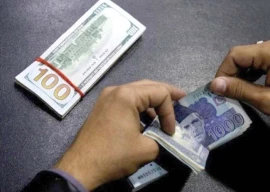
Budget deficits and the related public sector borrowing have proven to be an Achilles’ heel for not only developing countries but the advanced nations of the world as well.
The ongoing European sovereign debt crisis is a present example of this continuing trend. While taxation is seen as coercive by taxpayers who try their best to evade it, charitable giving is a voluntary act that most of us, whether from the poor or the privileged, would like to perform on different scales.
Although taxation is very tightly managed and organised, charitable giving and philanthropic contributions have by and large been left out of professional activity, especially in the Muslim world that contributes significant amounts on a global level.
Taking the example of Zakat – an obligatory duty for Muslims – in Saudi Arabia, the amount collected by government and non-governmental organisations is huge. The members of the royal family and corporates in the country contribute an estimated $30 billion, which is about 5% of the gross domestic product of the country.
The current era has created a lot of disincentives for Muslim giving, as in the words of President Barack Obama, “[The US] rules on charitable giving have made it harder for Muslims to fulfil their religious obligations” (June 2009, Cairo, Egypt). It is therefore imperative to look into creating incentives for people to not only continue to give – in the form of charity and philanthropic contributions – but also give more. This can be made by making charity a pleasant and a rewarding activity, beneficial not only in the hereafter but also in this world. One way of doing so is by giving social recognition to those who contribute to charity and by establishing prize-giving schemes for the benefit of such people.
Given the trust deficit between the general public and the government, it is proposed that the private sector should play an active role in the organisation and collection of funds. A public-private partnership indeed can be established, with an enabling regulatory framework and an effective governance structure.
One possible solution is to create an incentive-based charity contribution programme, allowing the charity contributors to win prizes each and every time they make a donation. The programme should be available on a retail level through state-of-the-art technology, enabling people to donate using their mobile phones, at shopping outlets, petrol stations, restaurants, banks, post offices and wherever it is convenient for them to make cash donations. The estimated annual charity contribution for Pakistan is Rs250 billion. This is a huge sum, as compared to the annual budget deficit of the government (initially projected to be Rs685 billion – 4% of the gross domestic product but later revised to go up to 7% - for the fiscal year 2011-12. If only 20% of the annual charity collection is used as a fiscal tool, this will allow the government to reduce its annual budget deficit by Rs50 billion.
If the charity money is used prudently and efficiently through a public-private partnership programme for development of long-term infrastructure projects, this can contribute immensely to economic development, income and employment generation, besides having consequent long-term benefits of reducing income disparities in the country.
If this experiment is successful, a completely new system of voluntary contribution can be devised to replace the existing coercive system of taxation. One huge advantage of opting for a voluntary system is in terms of significant decrease in the costs associated with collection. This will have a direct effect on the management of budget deficits, and may indeed result in budget surplus.
The writer is an economist and PhD from Cambridge University.
Published in The Express Tribune, March 12th, 2012.
COMMENTS (7)
Comments are moderated and generally will be posted if they are on-topic and not abusive.
For more information, please see our Comments FAQ

1725882931-0/Tribune-Pic-(7)1725882931-0-165x106.webp)
1731756268-0/BeFunky-collage-(9)1731756268-0-165x106.webp)

1726728390-0/BeFunky-collage-(7)1726728390-0-165x106.webp)












Try sending anonymous donations to say LUMS which offers full scholarships to needy students under NOP program - karrar hussain is one fine example. www.lums.edu.pk Nust is another deserving institute whose students have reached Harvard and MIT
Well said Dr. Humayon. Presently we have very few nationwide reliable charity organisations working without any bias or favoritism but covering very limited areas like Edhi, Al-Khidmat Foundation (Jamate Islami), Shaukat Khanam etc. We need some more organisations with focused or targeted areas of work to get more fruits & results of this blessed & deep rooted DNA (philanthropy) of Muslim Society.
U all fissing and fissing guys first get rid of these crrupt feudals and army gen from looting the country fishing ,,,,,....
The problem is that while we are ALL tax cheats (equivalent to stealing) we are a very charitable people. I don't know if your estimates are correct. No one wants to tell you what they give to charity in case that attracts the attention of the corrupt FBR. They could make an inference of your income and wonder why you are not paying any income tax.
This is an "informal social safety net" that helps the poor keep body and soul together in these difficult times.
I am surprised why in the so-called "Arab Spring", all Muslim countries, charity did not keep the revolutionary foces at bay.
But maybe they did -- for 35-40 years which is not a bad record.
"Give a man a fish and he eats one day. Teach him how to catch one and he eats every day." - Japanese proverb